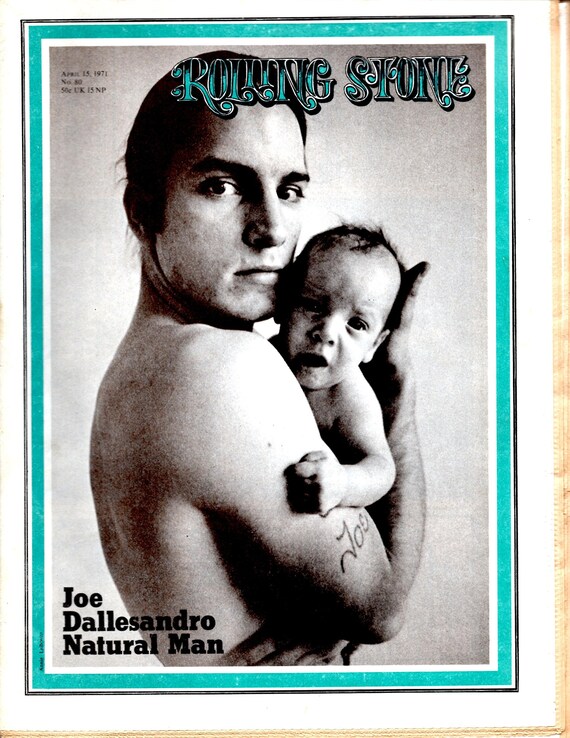There are 29 days until summer.
Hopefully, you'll be able to get to the beach this year.
May 22, 1931 -
The Pre-code adaptation of the classic tale Trilby, Svengali, starring John Barrymore, Marian Marsh, and Donald Crisp, premiered in the US on this date.
This pre-Code film stirred controversy due its nude modeling scene featuring a teenage Marian Marsh. The actress wore a body stocking for the scene and, in the long shot where she runs from the room, an older body double was used instead of her.
May 22, 1947 -
David Lean's classic, Great Expectations, premiered in NYC on this date.
Alec Guinness admired the way David Lean directed him, singling out a close-up in which he had to laugh out loud, and which he struggled to make look unmanufactured. Lean told him to forget about the whole thing, sat by his side, and made a little signal to the camera to start turning in the course of the conversation. He said something which made Guinness laugh and then said, "Cut." Guinness: "So he got this shot on a totally false premise, but thank God. I don't think I would have ever achieved it otherwise."
May 22, 1961 -
Ernie K Doe went to No.1 on the US singles chart with Mother In Law, on this date.
The song was written and produced by Allen Toussaint who also played the piano solo.
May 22, 1965 -
The Beatles single, Ticket to Ride hit No. 1 on the Billboard charts on this date.
Most Americans at the time, concluded the "ticket" was from British Railways, and "ride" was the town of Ryde on the Isle of Wight. McCartney confessed to his biographer Barry Miles that they were partly right. Paul had a cousin who ran a bar in Ryde and he and John had visited them there. Paul later mentioned that although the song was primarily about a girl riding out of the life of the narrator, they were conscious of the potential for a double meaning.
May 22, 1967 -
Today was the first day a soft spoken man slipped into your home and made himself more comfortable. But don't let his demeanor fool you, he was the power behind the throne of a kingdom where most of the royalty were mere "puppets".
Guests on the show were often surprised to find that although Rogers was just as gentle and patient in life as he was on television, he was nevertheless a perfectionist who did not allow "shoddy" ad-libbing. He believed that children were thoughtful people who deserved programming as good as anything produced for adults on television.
May 22, 1971 -
The Rolling Stones' Sticky Fingers album, with a working zipper on the cover, hits #1 in the US, on this date.
Andy Warhol designed the Sticky Fingers album cover. Before he started working on it, Mick Jagger send Warhol a note warning that a complicated design could cause nasty production delays, but nonetheless giving him total creative control. The artist responded with a cover that contained an actual working zipper, which of course was a production nightmare. The cover, however, was one of the most memorable ever made. It showed a man wearing very tight jeans behind that working zipper - many folks assumed this was Mick Jagger, but it was actually Joe Dallesandro, a actor and Warhol cohort.
Dallesandro appeared on the cover of the April 15, 1971 issue of Rolling Stone magazine; the album was released on April 23.
May 22, 1980 -
Namco released the phenomenally popular arcade game, Pac-man (known as Puck-man), in Japan on this day.
An instantaneous hit, Pac-man is still considered a landmark in video gaming history.
May 22, 1992 -
The man most of America went to bed with every night for 30 years, finally got tired of having to try to satisfy so many people.
Johnny Carson's final appearance on The Tonight Show was broadcast on this date. The Tonight Show starring Johnny Carson remained a fixture on NBC through the administrations of seven U.S. Presidents: John Kennedy, Lyndon B. Johnson, Richard Nixon, Gerald Ford, Jimmy Carter, Ronald Reagan, and George Bush.
May 22, 1985 -
14th James Bond film (if you are counting them in a certain way), A View to a Kill, starring Roger Moore (in his last appearance as James Bond), Grace Jones, and Christopher Walken, premiered in San Francisco, on this date.
Roger Moore said that of the seven Bond films in which he starred, this is his least favorite. He didn't like the increased violence, and he felt he was getting too old for the part. Roger Moore turned 57 during filming, making him the oldest actor to play Bond. Sean Connery was 52 when he did Never Say Never Again.
May 22, 2001 -
NBC aired the final episode of Third Rock From The Sun, The Thing That Would Not Die on this date.
One of John Lithgow's reasons for doing this television series was to allow him a "family friendly" work schedule, which he was unable to manage in theatre with an 8 p.m. curtain time, and movies, which required location shooting. Lithgow wanted to be at home with his family and this show allowed that.
May 22, 2019 -
The biographical film Rocketman, starring Taron Egerton as Elton John, debuts in the UK, on this date.
The BBC's film critic Mark Kermode praised Rocketman for taking risks in its portrayal of Elton John, in stark contrast to Bohemian Rhapsody, which was widely criticized for being a sanitized, family-friendly version of his friend Freddie Mercury.
Don't forget to tune in to The ACME Eagle Hand Soap Radio Hour today
Today in History:
May 22, 337 -
Emperor Constantine died on this date. Although quite dead, his embalmed corpse continues to act as head of state, receiving state dignitaries and daily reports from ministers as if nothing had changed. Constantine's macabre leadership continues through winter.
Sometimes, it's good to be the King, even after you're dead.
May 22, 1813 -
One of the most controversial personalities of the nineteenth century, Richard Wagner was born on this date. Wagner wrote some of its most controversial music. Hitler is said for most of his life to have kept only three books on his nightstand: Wagner's autobiography, Machiavelli's The Prince, and Young Aryan Youth, lederhosen around their ankles, sitting in a tub of Chocolate Pudding. (How Hitler ended up with Wagner's nightstand is a question best left alone.)
Wagner considered it his life's mission to create a new and purely German music, in German, about Germany, for Germans, and is therefore best known for having scored the helicopter scene in Apocalypse Now.
May 22, 987 -
Louis V le Faineant, known as the Lazy, king of France (all of 20 years old,) was allegedly poisoned by his mother, on this date. It was reported that he fell off his horse during a hunting accident the day before.
Kids, when your mother tells you to clean up your room - do it!
May 22, 1856 -
Massachusetts Senator Charles Sumner was beaten unconscious with a cane on the Senate floor by South Carolina’s Preston Brooks on this date.
Brooks, a pro-slavery Democrat, attacked Senator Sumner, a Republican abolitionist from Massachusetts, so badly that he was unable to resume his duties for three years. Brooks resigned from his seat but was re-elected.
And you thought, things were contentious in the Senate now-a-days.
May 22, 1906 -
The Wright Brothers, Orville and Wilbur, were granted a U.S. patent for their “new and useful improvements in Flying Machines.” (US No. 821,393)
It is the first airplane patent in the U.S.
May 22, 1907 -
Laurence Kerr Olivier, director, producer and one of the most famous and revered actors of the 20th Century, was born on this date.
Interestingly, Olivier is buried alongside some of the people he has portrayed in theatre and film, for example King Henry V, General John Burgoyne and Air Chief Marshal Hugh Dowding.
May 22, 1939 -
Italy and Germany allied themselves with the Pact of Steel on this day, forming the basis for the Axis powers, which would later include Japan.
Despite the fact that the two became allies, Hitler and Mussolini still did not trust each other, so the pact was a very uneasy alliance even after the Tripartite Agreement Pact in 1940, when Japan joined.
May 22, 1962 -
A bomb, placed by Thomas G. Doty in the lavatory of Continential Airlines Flight 11 (a Boeing 707-124 ), carrying 45 passengers and crew, exploded, tearing the airliner apart. This had the unfortunate distinction of being the very first sabotage of a commercial jet airliner in the world.
Wreckage rained down from south of Cincinnati to Unionville, Missouri where the major sections of the aircraft crashed. One passenger managed to survive that terrible night but died early the next morning from his injuries. He was 27 year old Takehiko Nakano, an engineer from Illinois.
May 22, 1964 -
Lyndon B. Johnson formally outlined his goal to create a "Great Society" through social reform during commencement exercises at the University of Michigan at Ann Arbor, on this day.
Two main goals of the Great Society social reforms were the elimination of poverty and of racial injustice. The most long-lasting programs of the Great Society include Medicaid and Medicare.
May 22, 1969 -
The lunar module of Apollo 10 (named Snoopy, with Thomas P. Stafford and Eugene A. Cernan aboard) separated from the command module, on this date, (named Charlie Brown piloted by John W. Young) and flew to within nine miles of the Moon's surface in a dress rehearsal for the first lunar landing.
Later that day, a disaster was averted after the Lunar Module separated from the descent stage began to roll violently due to the crew accidentally duplicating commands into the flight computer. Quick action by the crew saved them from crashing into the Moon (on live TV, no less.)
And so it goes.






No comments:
Post a Comment